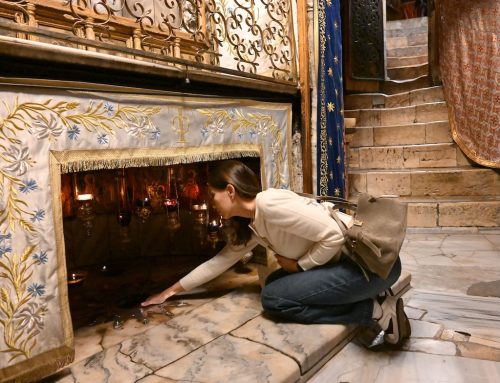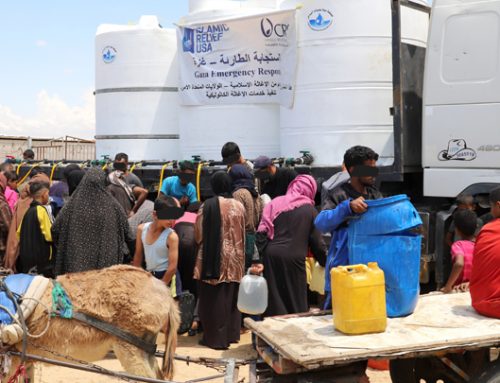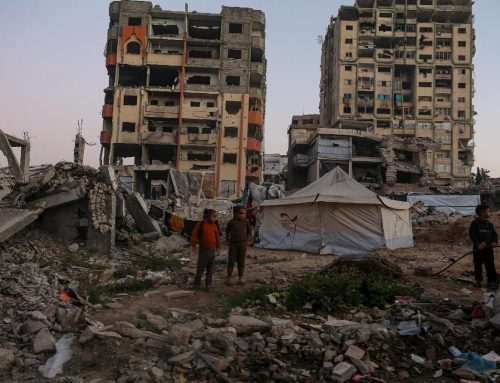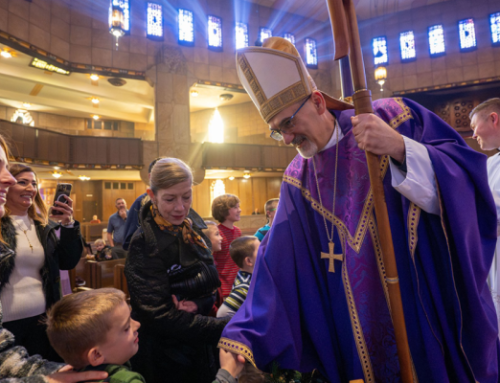Meeting the Reunion of Aid Agencies for the Oriental Churches (ROACO) on Thursday, Pope Francis restated his heartfelt plea for peace in the world, and particularly in the Middle East and Ukraine.
“To those who fuel the spiral of conflicts and reap profit from them, I once again say: Stop! Stop because violence will never bring peace,” the Pope pleaded as he addressed participants in the 97th plenary assembly of the Holy See’s humanitarian arm for the Oriental Churches concluding Thursday.
Focus on Middle East and Ukraine
The four-day meeting held in the General Curia of the Society of Jesus in Rome included a focus on the dramatic situation in the Holy Land, as well as Ukraine and Ethiopia. Participants also discussed the pastoral care of the many Eastern Catholics outside their territories.
Martyr Churches
In his address, Pope Francis lamented that many Eastern Churches have become “martyr Churches”.
“Just as the Lord’s flesh was pierced by nails and a lance, so many Eastern communities are suffering and bleeding because of the conflicts and violence they endure,” he said.
The Pope recalled the Holy Land and Ukraine, but also Syria, Lebanon, the entire Middle East, the Caucasus, and Tigray in Ethiopia. “It is in these very places, where great numbers of Eastern Catholics are found, that the brutality of war is felt most fiercely.”
He then renewed his appeal for solidarity. “We cannot remain indifferent,” the Pope said.
He encouraged the members of ROACO “to persevere” in their support for the Eastern Catholic Churches, “assisting them, in these dramatic times, to remain firmly rooted in the Gospel.”
The Pope further urged the clergy and religious of Eastern Churches to be ever “attentive” to the cries of their flock, “exemplary” in faith, “putting the Gospel before all forms of dissension or self-interest, and united in service to the common good.”
Pope Francis warmly thanked the representatives of the various agencies of ROACO “for responding to the malign logic of power with the Christian logic of service.”
“The seeds you plant in fields poisoned by hatred and war,” he noted, “will be a prophecy of a different world, one that does not believe that might makes right, but in the non-violent power of peace.”
Call for a ceasefire in the Holy Land
Referring specifically to the dramatic situation in the Holy Land, Pope Francis reiterated his call on the faithful throughout the world to show their closeness to Christians in the Middle East, encouraging them “to rise above the temptation to abandon their lands torn by conflicts.”
He insisted on the urgent need for a ceasefire in the Holy Land and for dialogue, so as to allow the peaceful coexistence of different peoples in those lands.
“This is the only possible path to a stable future, “he said. “With war, a senseless and inconclusive venture, no one emerges a winner; everyone ends up defeated, because war, right from the beginning, is already a defeat, always.”
Pray for peace in Ukraine and release of prisoners
Pope Francis then turned his thoughts to war-torn Ukraine.
He again called for prayers so that “paths of peace may open for those beloved people, that prisoners of war may be freed, and children repatriated.”
He also conveyed his “fraternal greetings” to His Holiness Karekin II and to the dear people of Armenia facing conflict.
Supporting Eastern Christians living in the diaspora
Bringing his address to a close, Pope Francis referred to the many Eastern Christians fleeing conflicts or migrating in search of work and better living conditions.
He recalled the risk of these diaspora communities “losing their religious identity” and of the precious “spiritual heritage” of the East being “weakened.”
While expressing his gratitude to the Latin dioceses that welcome Eastern Christians, he urged them to show them “particular concern” so that they may keep the Eastern rites alive and flourishing.
He concluded by encouraging the Dicastery for the Eastern Churches to work to this end, “by establishing principles and norms that can help Latin bishops support Eastern Catholics living in the diaspora.”
By Lisa Zengarini | Vatican News






